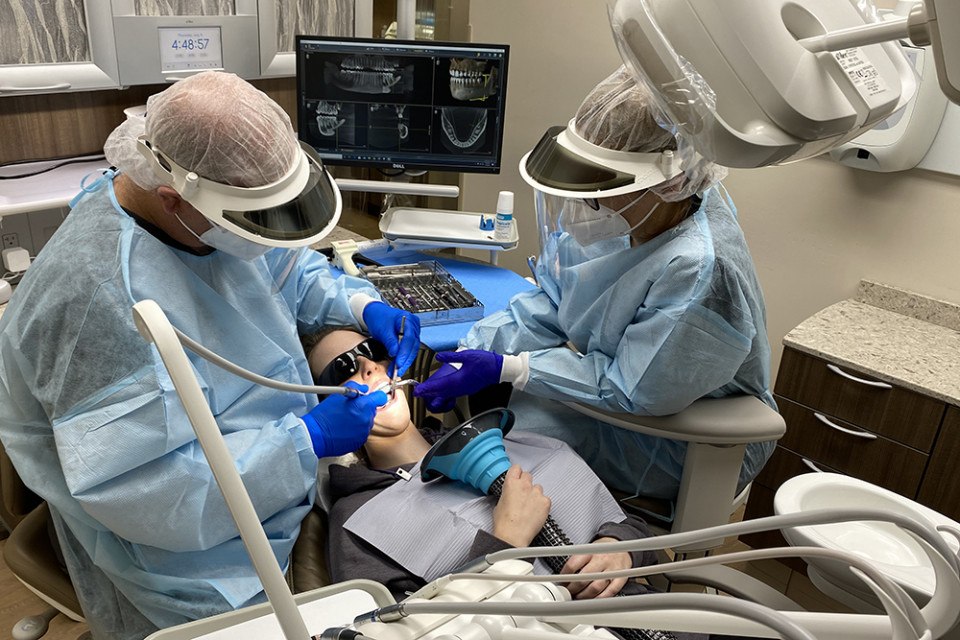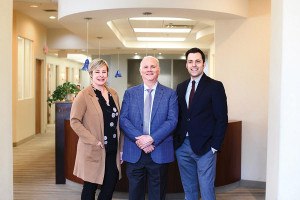Is It Safe to Go to the Dentist Right Now? Here’s What to Expect at Your Next Visit

Brian L. Wilk, D.M.D., is a general and cosmetic dentist at Highpoint Dental Medicine, which he founded in 1992 in Chalfont, Pennsylvania. He received a B.S. in chemistry from George Washington University and his D.M.D. from the University of Pennsylvania School of Dental Medicine, where he has since served as a clinical associate and instructor. Here, Dr. Wilk answers top patient questions about returning to the dentist’s office after recent closures.
What new safety precautions have you implemented at your office?
Due to the airborne aspect of the virus, we installed a whole office evacuation system — the first of its kind in the country. It changes over the air in each treatment room at least every 15 minutes and I can run all of my treatment rooms at a very high level of vacuum at once. A vacuum hose attached to a cone rests on the patient’s chest, so anything that they’re breathing out and I’m breathing out can go into the hose, through a filter and out of the office.
Each treatment room now has a UVC light that sanitizes the space each night. They’re all linked with an app where we can control it and set a timer. Dentists also continue to sterilize their instruments and wear N-95 masks, face shields and gowns.
What else should patients expect at their appointments?
Instead of using the waiting room, patients park their cars, call us up and ring a video doorbell when it’s time for their appointments. We greet them at the door, check their temperatures, ask them a series of screening questions and give them hand sanitizer, gloves and masks if they don’t already have one. An additional employee who, when she’s not checking patients in, sanitizes all surfaces throughout the office, including light switches, doorknobs and countertops. Contactless payment is also encouraged.
We really try to discourage additional visitors unless absolutely necessary, like a parent accompanying a toddler. All of the treatment rooms have exterior windows, so parents can watch what’s going on from outside. It’s a lot easier for everyone.
What types of procedures are you performing right now?
At this point, dentists in Pennsylvania and New Jersey can perform any procedure. More harm than good can come with people putting it off. The American Dental Association recently stated that the longer dental practices remain closed to preventive care and treatment, the more likely that patients’ untreated disease will progress, increasing the complexity and cost of treatment down the road. I’ve recently seen a few people who needed dental care, but due to the delay, required additional treatment and even lost teeth.
For more information about booking your next dental appointment, click here.
This is a paid partnership between Highpoint Dental Medicine and Philadelphia Magazine